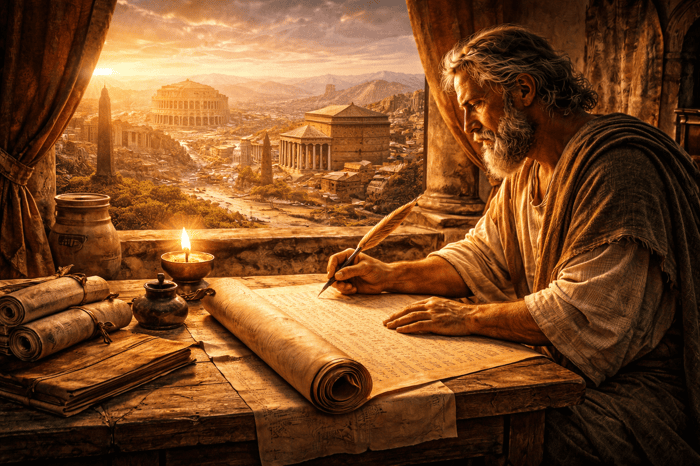The Book of Exodus is one of the foundational books of the Bible. It details the story of God delivering the Israelites from slavery in Egypt, giving the Ten Commandments, and establishing the covenant. But who wrote this incredible narrative? For centuries, scholars, theologians, and historians have studied this question.
Traditional View: Moses as the Author
Both Jewish and Christian traditions hold that Moses wrote the Book of Exodus and the other four books of the Torah (Genesis, Leviticus, Numbers, and Deuteronomy). This collection is often referred to as the "Books of Moses" or the "Pentateuch."
Several biblical references support this view:
- Exodus 17:14: "Then the Lord said to Moses, ‘Write this on a scroll as something to be remembered and make sure that Joshua hears it...’"
- Numbers 33:2: "At the Lord’s command, Moses recorded the stages in their journey."
- John 5:46: Jesus says, "If you believed Moses, you would believe me, for he wrote about me."
These passages indicate that Moses was commanded to write significant portions of Israel's history and law. Tradition suggests that Moses wrote Exodus around 1445–1405 BC during the Israelites' wilderness journey.
Arguments Supporting Mosaic Authorship
- Firsthand Perspective: The detailed descriptions of Egyptian culture, geography, and practices suggest the author had firsthand knowledge of Egypt.
- Unified Narrative: The writing style and structure of the Torah align across all five books, supporting the idea of a single primary author.
- Eyewitness Testimony: Key events, such as the plagues, the Red Sea crossing, and encounters with God, are written with the depth and vividness expected from an eyewitness.
Modern Scholarly Perspectives
While traditional views hold Moses as the author, many modern scholars propose that the book of Exodus (and the Torah as a whole) was compiled from multiple sources over time. This theory is often referred to as the Documentary Hypothesis, which suggests that the Torah was written by four main sources:
- J (Yahwist): Focuses on the name Yahweh and portrays God with human-like qualities.
- E (Elohist): Refers to God as Elohim and emphasizes dreams and divine communication.
- P (Priestly): Details laws, rituals, and genealogies with a formal tone.
- D (Deuteronomist): Associated with the book of Deuteronomy and emphasizes moral laws.
According to this view, these sources were compiled over centuries, possibly during or after the Babylonian exile (6th century BC).
Arguments Supporting the Documentary Hypothesis
- Literary Differences: Different sections of Exodus show variations in language, style, and focus.
- Doublets and Contradictions: Stories like the giving of manna (Exodus 16) and water from the rock (Exodus 17 and Numbers 20) appear more than once with differences.
- Historical Context: Some scholars argue that the final form of Exodus reflects a later period, possibly influenced by Israel’s collective memory and oral traditions.
A Balanced Perspective
While traditional believers hold to Moses' authorship, acknowledging God’s inspiration, others see the Documentary Hypothesis as a way to understand how sacred texts developed over time. Regardless of the human authors or compilers, Christians and Jews regard Exodus as divinely inspired.
Key Points to Consider
| Viewpoint | Strengths | Weaknesses |
|---|---|---|
| Mosaic Authorship | - Fits biblical tradition - Unified narrative - Detailed descriptions suggest firsthand knowledge |
- Lack of explicit claim within the text - Questions about Moses writing about his own death (Deut. 34) |
| Documentary Hypothesis | - Explains variations in style and focus - Supported by historical-critical methods |
- Lacks solid evidence for specific sources - Fragmentation challenges theological unity |
Why It Matters
The authorship of Exodus isn’t just an academic debate. For believers, it’s a question of how God reveals His will and interacts with humanity. Whether written by Moses directly or compiled by later authors, Exodus serves as a cornerstone of faith, showing God’s power to save and establish His covenant with His people.
As 2 Timothy 3:16 reminds us, "All Scripture is God-breathed and is useful for teaching, rebuking, correcting and training in righteousness." The spiritual truths in Exodus remain unchanged, inspiring readers to trust God’s guidance in their own lives.




